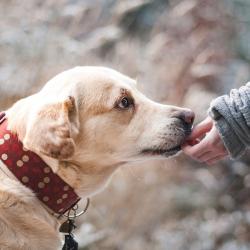Autistic Senior Care - Could Professional Live in Carers Be the Solution?
For many adults as they grow older there may be a need for some form of assistance. This might be residential care, a nursing home or using an in home care provider to offer the support that might be needed with declining physical health, mental health, or both.
This is equally an issue for autistic adults. One concern that many older autistic adults who are used to living independently have is that the type of help available to them. They may have particular concerns that care offered by the residential system may have little understanding of autism or lack the staffing levels to be able to cope with autism effectively, They may worry that they have to pay over and above the usual care costs in order to offer the autistic person the best support possible.
Autistic Adult Support Is Becoming More Crucial Than Ever
It is estimated that one in a hundred people in the UK, at least, are autistic, many of whom are adults now reaching their senior years. Some of these individuals may have also spent much of their lives living under a misdiagnosis of their condition, something that may only have come in light in later years when they saw a doctor for some other medical reason. Because of this, the support that is currently offered to autistic individuals is much more prevalent in the younger age groups. Sadly, there is not a lot of research or support around autism in adults of middle age or greater.
Autism is a spectrum diagnosis that covers a range of intellectual capabilities. Autistic individuals often have other mental health or physical conditions. Many autistic adults, who do not display severe signs of intellectual disabilities have never been given a formal diagnosis either and priority specialised care for autistic adults is prioritised for those with learning disabilities. This means that only generic care is available and that is not always suitable.
Why might home be better?
Many autistic individuals thrive on routine, having everything where they expect it to be, having their meals at set times, and following a structured routine. This is something that can be hard to achieve in a more traditional residential care setting where they will not only be surrounded by other elderly people. In some cases, some residents may have memory issues which can be distressing to others. In addition, there may be frequent changes in staff and often with little notice.
A live in carer on the other hand will offer more structure to an autistic individual. They will be more able to closely follow a routine that suits the person they are caring for. This type of care also allows for them to be surrounded by all of their own belongings and keep them exactly as they want.
Some autistic individuals find it hard to form relationships in adulthood and as such may rely disproportionately on the help of a sibling or their parents. This is the life that they are comfortable with and the solitude that it provides is what they need whilst offering them the right level of support. For others who have previously coped, the need for someone to help them on a day to day basis may have become necessary. As such, live in care offers a practical choice that can work around the autism rather than against it.
More to Read:
Previous Posts:







